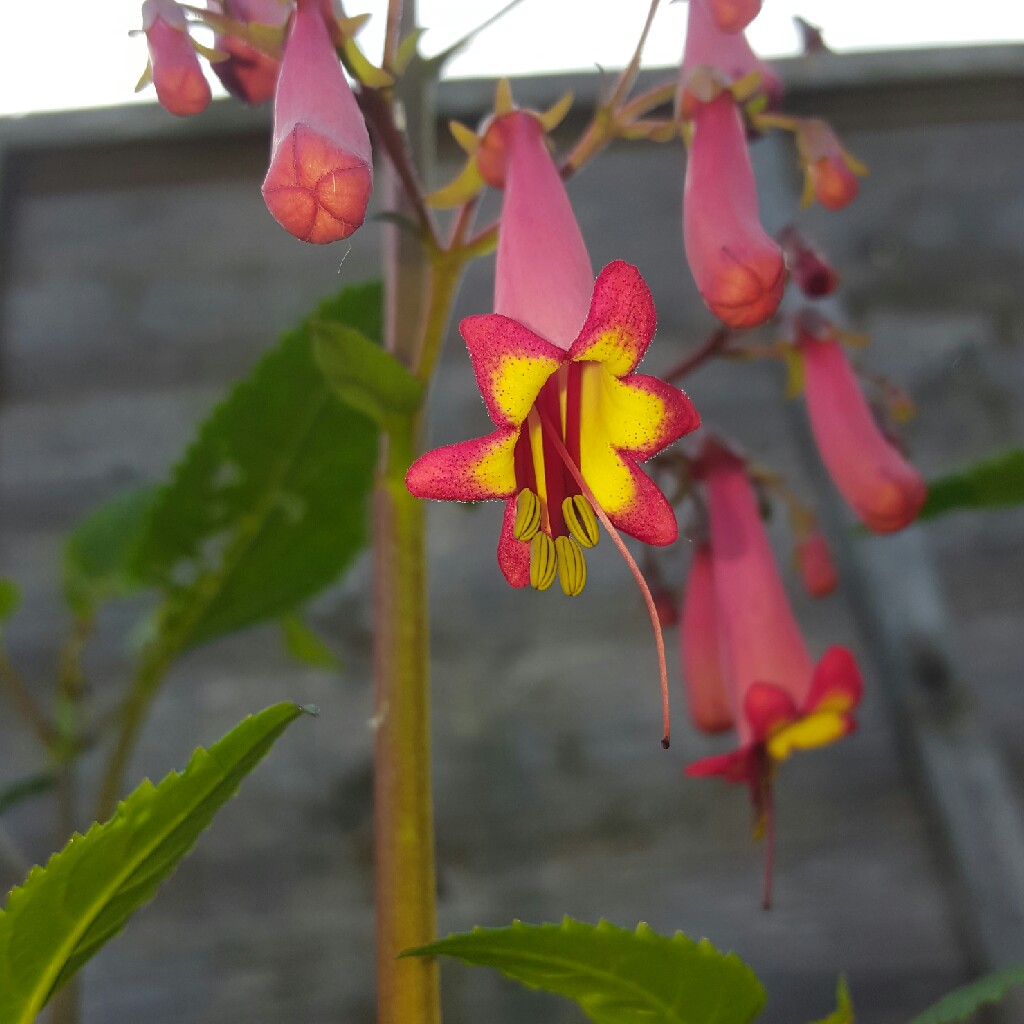
Phygelius x rectus 'Devil's Tears'
Cape Fuchsia 'Devil's Tears'
Phygelius are evergreen shrubs, usually grown as herbaceous perennials in cooler areas. 'Devil's Tears' is a suckering shrub with dark green leaves and large panicles of red buds opening to pendent, tubular deep pink flowers with orange lobes and yellow throats
Contributed by @GreenFingeredNelly
-
Full sun
-
Occasional watering
-
Frost Hardy: 23F (-5°C)
-
Moist and free draining
Common name
Cape Fuchsia 'Devil's Tears'
Latin name
Phygelius x rectus 'Devil's Tears'
type
Herbaceous Perennial
family
Scrophulariaceae
ph
5.5 - 8.0 Acid - Neutral
Plant & bloom calendar
-
Best time to plant
-
When the plant will bloom
full grown dimensions
 1.50 M
1.50 M
1.50 M
1.50 M
Phygelius x rectus 'Devil's Tears'
Phygelius are evergreen shrubs, usually grown as herbaceous perennials in cooler areas. 'Devil's Tears' is a suckering shrub with dark green leaves and large panicles of red buds opening to pendent, tubular deep pink flowers with orange lobes and yellow throats
Planting Outdoors
From Mid Spring TO Late Spring
Plant out in a moist and fertile site in full sun.
Propagation by seed
From Early Spring TO Mid Spring
Sow seed under glass, they will need potting on into bigger pots. plant out when big enough to handle.
Propagation by cuttings
From Mid Spring TO Early Summer
Take soft wood cuttings in spring to early summer. Cleanly cut up to a 10 cm long stems, remove lower leaves and pinch the tip out, dip the stem into rooting hormone, fill a container/pot with suitable compost, make holes around the edge of it and plant the cuttings, water in well, cover with a polythene bag and place somewhere warm, lake the bag off twice a week to air the cuttings. Keep the cuttings moist until well rooted.Harden off when well rooted and pot on into individual pots increasing the airing to let the leaves to develop. Remove rotten, dying or dead cuttings regularly.
Propagation by suckers
From Early Spring TO Late Spring
Suckers that have rooted can be carefully dug out and put into pots for a year before planting out into the garden.
Flowering Season
From Early Summer TO Early Autumn
Red buds opening to pendent, tubular deep pink flowers with orange lobes and yellow throats which resemble the flowers of the fuchsia.
Flowering
From Early Summer TO Early Autumn
Cape fuchsias bear fuchsia-like, tubular flowers from early / mid Summer to early Autumn
Planting
From Early Spring TO Mid Spring
Plant in moist but free-draining, fertile soil in a sunny position,
Propagate by cuttings
From Late Spring TO Early Summer
Take softwood cuttings from new growth early in the day in Spring or early Summer. Cut, neatly, a 4" approx. piece of a non-flowering shoot, pinch out the tip, and cut off the bottom leaves. Dip the bottom of the cutting in hormone rooting powder, and carefully place in a pot of cutting compost with the leaves just above the level of the compost. Water, label, cover with a polythene bag, and place in a warm, bright place, out of direct sunlight. Take the polythene bag off periodically for a while for ventilation (at least twice a week)
Propagate by suckers
From Early Spring TO Late Spring
Suckers that have rooted can be carefully dug out and put into pots for a year before planting out into the garden.
















